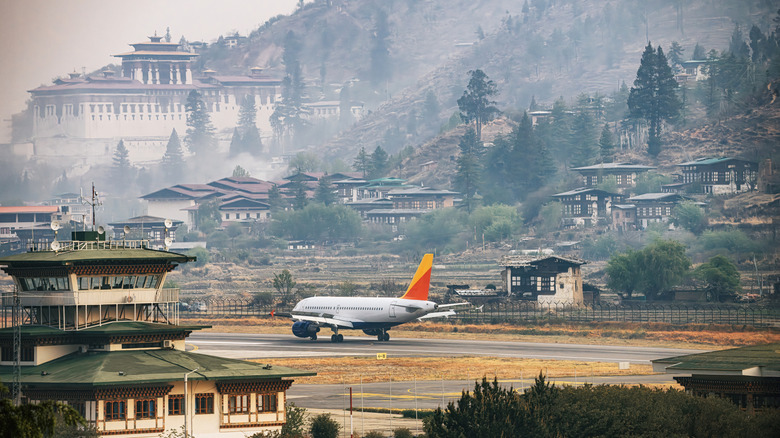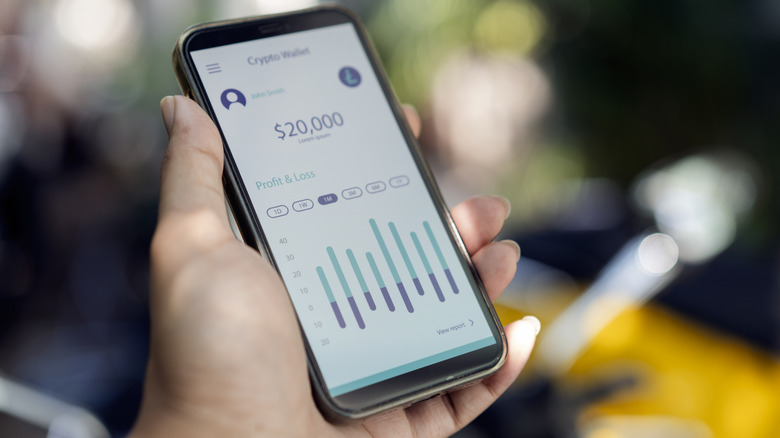A Breathtaking And Little-Visited Country Has Launched The World's First 'Crypto-Tourism' Scheme
Bhutan, nestled in the eastern Himalayas, sits comfortably in the record books: It's the world's most mountainous country, it was ranked one of the safest countries in the world for 2025, and, most impressively, it is the first carbon-negative nation on Earth. All of these features would be enough to make this breathtaking, adventure-filled wonderland a tourism hotspot. But it has embraced the "high-value, low-volume" model ever since it opened up to foreigners in 1974, making it one of the world's least-visited countries. Unfortunately, this admirable commitment to mindful tourism and sustainable development comes with downsides. For years, Bhutan has struggled economically and experienced a brain drain of around 9% of its 800,000-strong population. But the Asian nation is determined to change its fortunes. It's well-known for conceptualizing the visionary, holistic model of Gross National Happiness, and now it's embracing a similarly forward-thinking approach to financial growth. As of May 2025, it became the first country to launch a state-backed, nationwide "crypto-tourism" scheme — yet another record for the books.
This scheme aims to bring in those who have traditionally been excluded from the tourism economy, like small-scale and rural businesses. It will reduce the barriers these businesses have faced, including the need for card terminals (which can be expensive and may not even arrive in certain villages) and high transaction fees. It also uses the payment infrastructure that's already in place: Roughly 95% of Bhutanese vendors are familiar with and can accept mobile payments. But now, they'll be able to use the system they already know to receive income from international visitors who don't have Bhutanese bank accounts and may not be carrying cash. And it provides traveling crypto-natives with a convenient way to make purchases in a country where ATMs are scarce outside of cities and often unreliable.
How Bhutan's cryptocurrency payment system works
Surprisingly, the "Land of the Thunder Dragon" — a deeply spiritual, Buddhist nation — is no stranger to cryptocurrency. According to Al Jazeera, the country has holdings worth over $600 million, roughly 30% of its GDP, gained through mining Bitcoin — using green hydropower, of course. It even used this wealth to double the salaries of its civil servants in 2023, lowering resignation rates. So this novel crypto-tourism system is simply an extension of Bhutan's ongoing embrace of digital assets.
The scheme is a partnership between three parties: the national government; Bhutan's fully-digital financial institution, DK Bank; and Binance, one of the largest crypto exchange platforms. The process is fairly seamless: Travelers scan the vendor's QR code and pay using the Binance app, which supports over 100 cryptocurrencies. And DK Bank vets the merchants and handles the conversion into Ngultrum, the Bhutanese currency. Merchants don't need knowledge of fintech to sell their wares, and they won't experience the volatility for which the crypto market is known. Meanwhile, tourists holding crypto can pay easily, reliably, and securely, with low transaction fees.
It isn't just upscale hotels and restaurants offering this payment option — even artisans selling handicrafts at a local market and vendors selling fruit on the side of the road can accept cryptocurrency. As of July 2025, over 1,000 vendors have been onboarded into this network, while the goal is to scale the initiative across the entire country and integrate more than a million users (both merchants and tourists). And while it's still too early to fully understand the impact of this scheme, Bhutan's tourism department did confirm that rural vendors noticed increased sales since its launch. Hopefully, this trend continues, with more small-scale businesses experiencing financial growth, while tourism remains sustainable and low-impact, for years to come.

